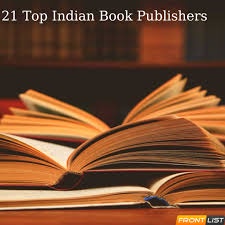In the vast landscape of the publishing industry, book publishers play a pivotal role in bringing stories to life. From acquiring manuscripts to marketing and distribution, they are the driving force behind successful books. In this article, we will delve into the intricate world of book publishers, exploring their history, functions, challenges, and future trends. So, grab your favorite novel and join us as we uncover the secrets of the business that goes beyond the cover.
History
Book publishing has come a long way since the invention of the printing press. Over the centuries, it has evolved into a sophisticated industry. The journey began with Gutenberg's printing press in the 15th century, which marked a significant milestone in the development of book publishers. Since then, the industry has witnessed various advancements, such as the rise of publishing houses, the establishment of copyright laws, and the advent of digital publishing.
Types
In today's publishing landscape, we can find different types of book publishers. Traditional book publishers, often referred to as "Big Five," have a long-standing presence in the industry. They have established distribution networks, extensive editorial expertise, and strong relationships with authors. On the other hand, independent publishers offer a more personalized approach, focusing on niche markets and unique voices. Additionally, self-publishing platforms have gained popularity, enabling authors to take control of the publishing process themselves.
Functions
Book publishers undertake several crucial functions to ensure the success of a book. First and foremost, they acquire and curate manuscripts, selecting those that align with their publishing vision. They also provide essential editorial services, including editing and proofreading, to enhance the quality of the content. Furthermore, book publishers invest in designing captivating book covers and layouts, creating an enticing visual package for readers. Lastly, they handle the crucial aspects of marketing and distribution, connecting authors with their target audience through various channels.
Challenges
While book publishers play a vital role in the literary ecosystem, they face their fair share of challenges. In an increasingly competitive industry, publishers must continuously adapt to changing market dynamics and consumer preferences. The digital revolution has disrupted traditional publishing models, necessitating a shift towards e-books, audiobooks, and other digital formats. Moreover, striking a balance between artistic integrity and commercial viability can be a delicate task. Publishers must also devise effective marketing strategies to ensure the discoverability of their titles in a crowded marketplace.
Future Trends
The future of book publishing is shaped by ongoing trends and emerging technologies. The industry is experiencing a significant digital transformation, with e-books and digital platforms gaining prominence. Hybrid publishing models are also emerging, combining elements of traditional publishing and self-publishing. Furthermore, data analytics and AI-driven insights are becoming integral to decision-making processes, enabling publishers to make informed choices about acquisitions, marketing campaigns, and audience targeting.
Conclusion
Book publishers are the unsung heroes of the literary world, bridging the gap between authors and readers. Their multifaceted roles encompass acquiring, editing, designing, marketing, and distributing books. As the publishing industry continues to evolve, book publishers must adapt to new challenges and embrace innovative approaches. They have a profound impact on the literary landscape, shaping the stories we love and cherish. So, the next time you pick up a book, remember the intricate web of professionals who made it possible.
FAQs
-
What services do book publishers provide?
-
Book publishers provide a range of services, including manuscript acquisition, editing, design, marketing, and distribution. They act as intermediaries between authors and readers, ensuring the smooth journey of a book from conception to publication.
-
How can I find reputable book publishers near me?
-
To find reputable book publishers near me you can start by researching publishing houses in your region. Attend industry events, join writing communities, and explore online resources that provide directories and listings of publishers. It's also essential to thoroughly research and verify the credibility and track record of publishers before submitting your work.
-
What factors should authors consider when choosing a publisher?
-
When choosing a publisher, authors should consider factors such as the publisher's reputation, track record, genre specialization, editorial expertise, distribution channels, marketing support, and contractual terms. It's crucial to find a publisher whose vision aligns with the author's goals and values.
-
Can self-published authors benefit from traditional publishers?
-
Yes, self-published authors can benefit from traditional publishers. Traditional publishers bring their extensive industry knowledge, distribution networks, marketing expertise, and editorial support to amplify the reach and visibility of an author's work. It can open doors to wider readership and provide opportunities for growth.
-
How can book publishers help with marketing and promotion?
-
Book publishers play a vital role in marketing and promotion. They utilize their industry connections, engage in strategic marketing campaigns, leverage digital platforms, arrange book tours, and secure media coverage to maximize the book's visibility. Publishers bring valuable expertise and resources to create effective marketing strategies that reach the target audience.


No comments yet